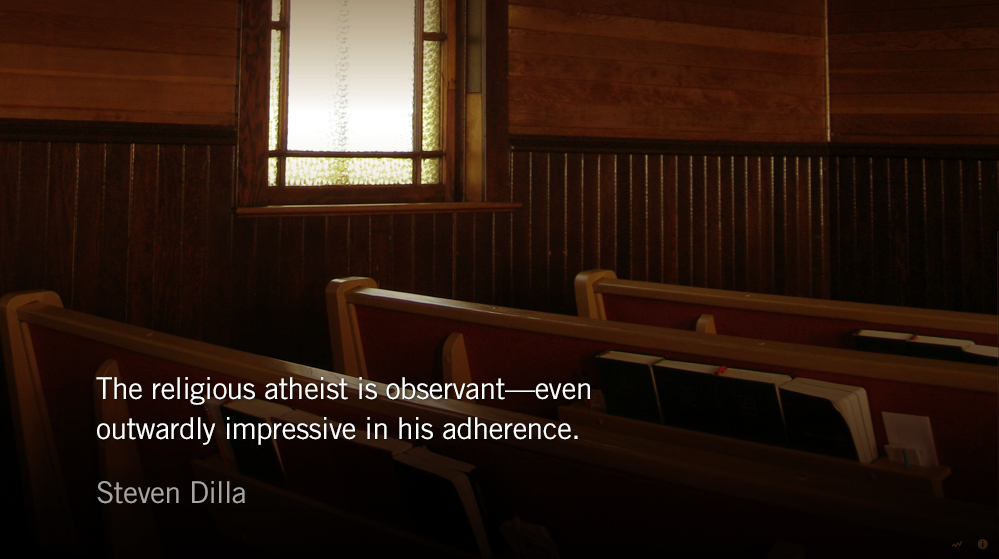The road is narrow. He who wishes to travel it more easily must cast off all things and use the cross as his cane. In other words, he must be truly resolved to suffer willingly for the love of God in all things.
— St. John of the Cross
Lenten Reflection: Contemplating the Cross
The Park Forum
Rejection of God is not limited to irreligion; it is possible to refuse the grace of Christ through religion. Because the heart of Christianity isn’t morality, the nature of temptation isn’t a draw toward immorality.
The irreligious version of this is obvious: the systematic or categorical rejection of God. Life apart from God through religion is more difficult to see. The religious atheist is observant—even outwardly impressive in his adherence. The religious atheist sees his efforts of living like Jesus as sufficient and acceptable to God.
The cross is perplexing to someone earning acceptance through works. It seems cruel and vulgar—pointless in affecting daily life and practice. To the faithful—who place their trust in the life, death, and resurrection of Christ—the cross, while no less cruel, is also beautiful because on it we see the depth of God’s love.
In the late 19th century Edward Monro composed a five-part hymn, The Story of the Cross. In the fifth to eighth stanzas Monro writes:
Follow to Calvary;
Tread where He trod,
He Who forever was
Son of God.You who would love Him stand
Gaze at His face:
Tarry awhile on your
Earthly race.As the swift moments fly
Through the blest week,
Read the great story the
Cross will teach.Is there no beauty to
You who pass by,
In that lone figure which
Marks that sky?
Monro wrestles with the weight of the cross, “For us Thy blood is shed, us alone.” Yet he is overwhelmed by the grace of God in this sacrifice. The cross is transformative in daily life because on it we see that God’s acceptance is not based on our work, but on his own—that God’s grace has no limits—that God’s love is sufficient where every earthly affection has failed.
In the final three stanzas Monro reflects on the daily impact of Christ’s sacrifice on our behalf:
Yea, let Thy cross be borne
Each day be me;
Mind not how heavy, if
But with Thee.Lord, if Thou only wilt,
Make us Thine own,
Give no companion, save
Thee alone.Grant through each day of life
To stand by Thee;
With Thee, when morning breaks
Ever to be.
Prayer: The Refrain
Send forth your strength, O God;* establish, O God, what you have wrought for us. — Psalm 68:28
– From The Divine Hours: Prayers for Springtime by Phyllis Tickle.
Full prayer available online and in print.
Today’s Reading
Exodus 20 (Listen – 3:21)
Luke 23 (Listen – 6:39)






